Benchmarking firm Futuremark has weighed in on claims that Apple is intentionally slowing down older iPhones to encourage upgrades, with analysis of benchmark results indicating iPhones maintain their performance over time instead of deteriorating.
To answer allegations of Apple purposefully holding back previous iPhone models via changes in iOS, Futuremark compiled data from its free 3DMark benchmarking tool, gathering results submitted by users. The company found that iOS updates largely kept iPhones running at a similar level of performance.
Data came from 3DMark's Sling Shot Extreme Graphics and Extreme Physics tests, used to measure the GPU and CPU performance respectively. Specifically, Futuremark turned to the average score for each device over the course of a month.
Looking at the iPhone 5s, the oldest device examined, a graph showing GPU performance reveals the average score has remained relatively stable between April 2016 and September 2017, with expected minor variations from month to month. A similar story was found with the phone's CPU performance, its score barely changing between months, the most recent average falling just slightly when compared with the earliest record.
"The graphs for CPU performance show a very slight drop in performance over time — possibly due to minor iOS updates or other factors — but a user would be unlikely to notice this small difference in everyday use," a Futuremark statement reads.
For the iPhone 6, GPU performance scores increased over time, with a small but noticeable jump at the time of iOS 10's release, and another larger increase for iOS 11. CPU performance did gradually decay in the results, though only slightly, with the graph leveling off from May 2017 onward.
In iPhone 6s graphs, GPU performance peaked for the introduction of iOS 10, before slightly dropping off and leveling again from May 2017. There is a very modest decline in CPU performance, though with no significant score shifts.
Lastly, iPhone 7 GPU performance did waver over time, with a fair boost visible for the last bar of the chart, representing the launch of iOS 11, but no major deterioration. CPU performance decreases towards the end of the chart, but again this shows only a marginal change over time.
"Our benchmarking data shows that, rather than intentionally degrading the performance of older models, Apple actually does a good job of supporting its older devices with regular updates that maintain a consistent level of performance across iOS versions," writes Futuremark.
The firm does note that there are some factors that may make users perceive a loss of performance after updating the operating system. These include updates introducing new resource-intensive features, new apps developed for newer hardware not running as smoothly, and older apps failing to take advantage of optimizations in later iOS releases.
There is also the human factor, Futuremark suggests. "There is always the psychological effect of knowing that there is a new and improved model available, which can make your own device seem outdated."
Another investigation into iOS upgrades for older devices, published in September, found that Apple's own apps became only marginally slower.
Benchmark scores are usually seen as a way to compare mobile devices against each other, though sometimes this can be an unreliable indicator. In 2013, Samsung was caught cheating in benchmarks, by including code within the operating systems of the Galaxy S4 and the Note 3 to make the processors run at maximum capacity if a benchmarking app was detected.
 Malcolm Owen
Malcolm Owen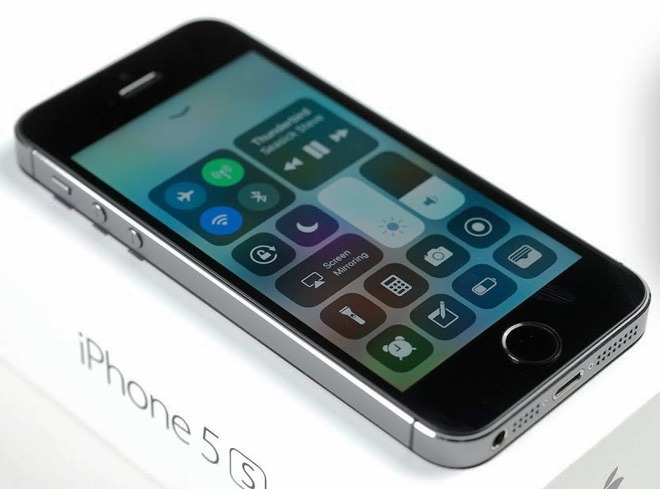

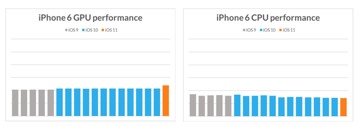
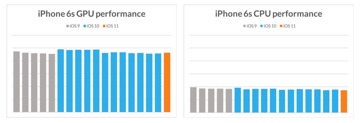
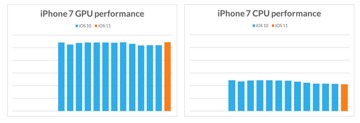







-m.jpg)





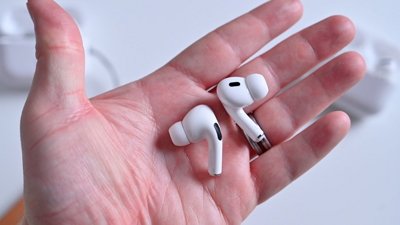
 William Gallagher
William Gallagher
 Andrew O'Hara
Andrew O'Hara
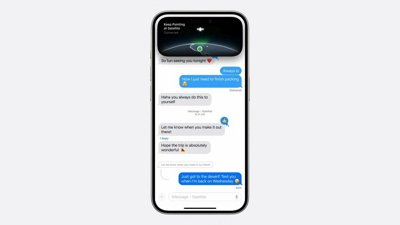
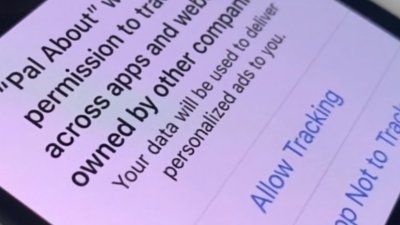

 Brian Patterson
Brian Patterson
 Charles Martin
Charles Martin










123 Comments
Were they hired by Apple to deal with this growing PR problem?
Benchmarks are well known not to translate to real-world usage. The biggest complaints are with GUI, restart, and app load slowdowns, not CPU or GPU functionality. No testing done on those facets, right?
The most vocal complaints overall are with the "just upgraded" times after a new iOS comes out. Every apologist tells us why we should mock complainers as ignorant fools, and Apple rest on their laurels with that as the community solution, rather than actually addressing that issue themselves once and for all.
It isn't even a question: Apple want you to keep buying the same hardware products every year. Now that they have phones and iPads, they can push an even faster upgrade cycle than with Macs. They are a hardware company using minimal software development to lure new buyers, who eventually may discover that the development of that software only supports selling the bullet point new features of each iOS, which sells iPhones (not continued maturation of the software product). In fact, their iOS developments have actually harmed their prior quality software development, like iWork (being back-ported from iOS to Mac OS, trashing hundreds of features and installing a clumsy GUI).
Yes, there is a push to upgrade to a new phone. Yes, the OS is the push. No, Apple don't optimize iOS for any device but the newest. Yes, planned obsolescence is a real thing. The computer industry has made it so much more blatant than any other industry and has accelerated the same in every industry that sells computerized product: Push product out prematurely, ignore the software bugs, push out the successor ASAP, and abandon the predecessor.
Okay, look, here's the reality. The public perception is that Apple has somehow crippled the hardware with an OS update, forcing users to buy new phones.
Guess what. Newer software means heavier software demands. The phones are literally the same speed as the day they were bought and these metrics are the proof. The difference is the load placed on them by the software.
There is no plot or conspiracy. There is no shadowy cabal demanding that code get bloated to force users to buy a new phone. There is no Cook and Ive plot to turn down the processor and GPU speed. That's insane to even speculate, but yet, here we are. Planned obsolescence as a conspiracy to force hardware sales isn't a thing.
Do you want your phone to be the same as the day you took it out of the box? Never update your software. Problem solved.
Isn't there usually a reindexing of the Spotlight service after a major OS update that could affect performance if the user tries it out before that service has finished its initial rescan?
For whining folks ,disable wifi .Never use the internet. Never use apps ,never update. Your phone will remain shiny forever. iPhone 5S was from 2013.My one runs fine. The fact that you still get software support with new features is awesome.
I have to believe that device backups that get carried from one iOS version to another that span years of activity and clutter just don't always play nice with an iOS update. Those that have issues ought to try a fresh install with no prior backup, as painful as that may be, and see improved performance.